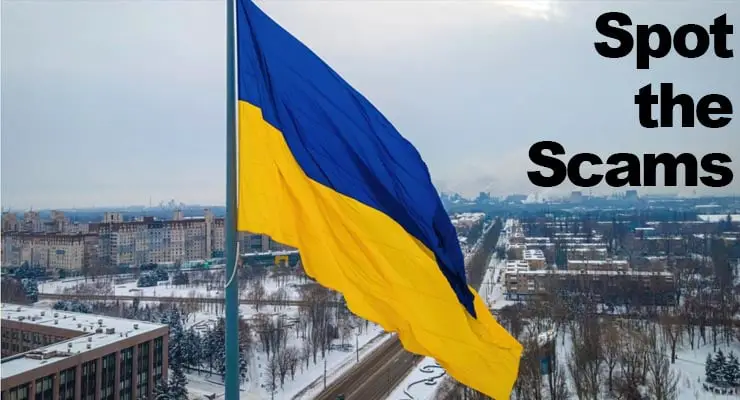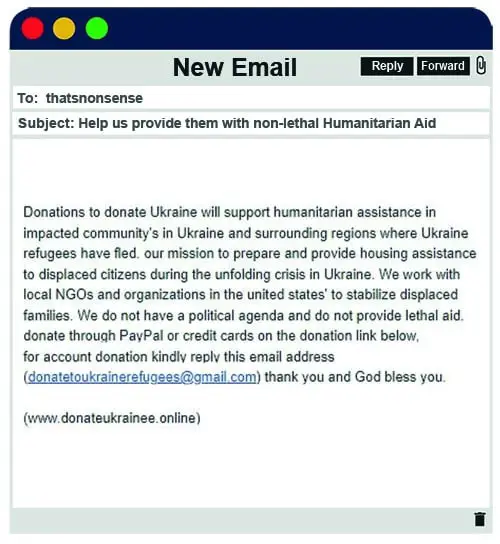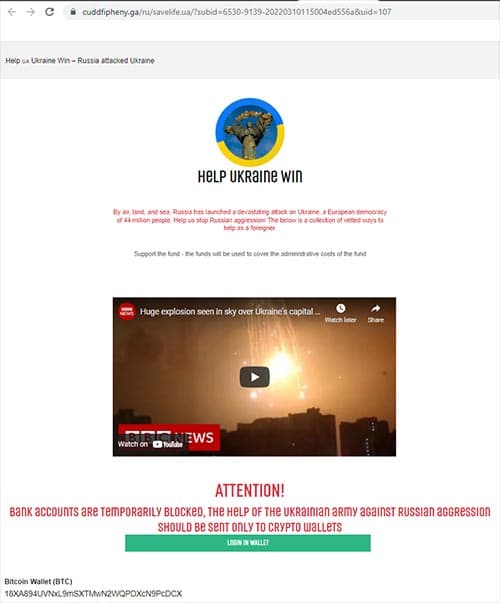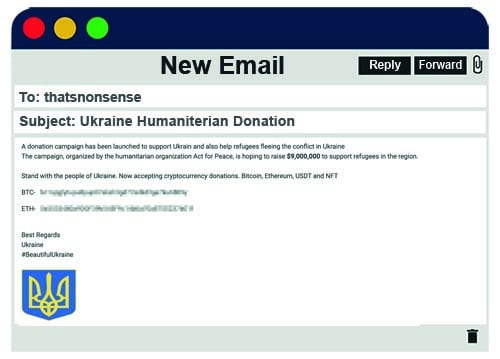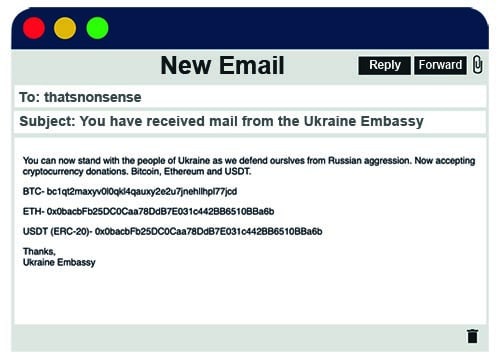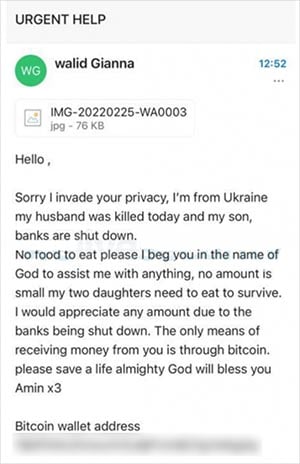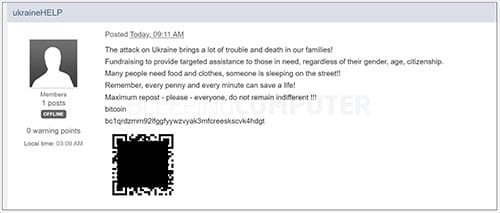Here is how cyber-crooks are scamming fake donations for Ukraine
Scammers, never a crowd to let a humanitarian crisis go to waste, have been exploiting the Russia Ukraine conflict to solicit fake donations. In fact there has been a huge surge of scams exploiting the conflict in Ukraine, and we discuss how to avoid these scams.
Many across the world have been donating money to help Ukraine defend itself against invading Russian forces as well as to help the increasing humanitarian crisis the conflict has caused. Inevitably scammers have tried to get into the action with a whole host of schemes aimed at tricking you into sending them money.
Wars and conflict not only offer scammers an emotional trigger – a person wanting to help innocent victims – but they also offer a sense of urgency since aid and donations are often needed quickly.
Emails soliciting donations
Perhaps the most common method employed by scammers seeking to take advantage of the Ukraine conflict is also one of the oldest scams in the crooks playbook. Email phishing scams.
These are unsolicited emails asking recipients to click a link to donate. The email may appear to come from a reputable source or it may be unclear who sent the email. Clicking the link leads to a website asking the recipient to provide their details to send money, or it may ask a visitor send crypto-currency to a specific wallet or wire money or use gift cards to donate.
These websites are operated by scammers, and any money sent via these websites go into the hands of crooks, not charities.
An example of an email asking for donations is below.
Below is a scam website which this link directs recipients to.
Emails containing crypto-wallet address
Another email scam, these emails don’t ask users to click a link, rather they directly have crypto-wallet addresses in the body of the email itself, like the two below which claim (falsely) to come from the Ukraine Embassy.
Some of these scam emails even falsely claim to come from individuals inside Ukraine.
A variety of different emails claim to come from different sources but any unsolicited email that has a crypto-wallet address in the email itself is likely to be a scam.
Sponsored Content. Continued below...
Social media posts, comments or forum posts
Scammers have also been trying to reach out not only by email but also via social media posts or in the comments sections of websites or within forums, claiming to be victims inside Ukraine desperately trying to get out. And they’re also posting crypto-wallet addresses on the chance that someone naïve enough will believe the post is legitimate.
Computer Security website Bleeping Computer noted the below forum post left on their website.
Advance fee fraud
Also called the ubiquitous “Nigerian scam”, this is where crooks contact a victim to promise them a large amount of money in exchange for first sending a small upfront fee. This scam is being repurposed for Ukraine.
We’ve seen reports that the latest advance fee scams involve scammers emailing victims pretending they are attempting to get a large amount of money out of Ukraine and need the recipient’s help. In exchange for that help, the crook offers a portion of the money – often ranging in the millions of dollars. But first the recipient must pay various upfront costs before they get their larger slice of the reward. And as soon as the recipient sends out this money, the crook disappears.
–
The most important advice to help protect you against the vast majority of fake donation scams is to simply disregard any text message, social media message, email, advert or website sent to you asking for donations. Instead, if you want to make a donation, go directly to a reputable charity or entity that you trust to make a donation. We have listed some below.
The official Crypto-currency addresses for the country of Ukraine was posted via their official Twitter channel and can be seen here.
Oxfam’s official page for Ukraine aid is here.
Unicef’s official page for Ukraine is here.
The Red Cross page for Ukraine aid is here.
The IRC (International Rescue Committee) page for Ukraine aid is here.
Sponsored Content. Continued below...
Finally, some further tips to help avoid these scams…
- DO NOT TRUST unsolicited emails containing links or crypto-wallet addresses, even if they appear to be from a reputable source.
- Never send crypto-currency to a wallet address you saw on an email, social media message or untrusted website. Only send crypto to wallets published directly by official sources and you know for certain the wallet is legitimate. Unless you can be absolutely certain, avoid donating via crypto-currency.
- Be especially cautious of requests to wire money or use gift cards to donate as these methods are frequently used by scammers to scam victims.
Continued below...
Thanks for reading, we hope this article helped, but before you leave us for greener pastures, please help us out.
We're hoping to be totally ad-free by 2025 - after all, no one likes online adverts, and all they do is get in the way and slow everything down. But of course we still have fees and costs to pay, so please, please consider becoming a Facebook supporter! It costs only 0.99p (~$1.30) a month (you can stop at any time) and ensures we can still keep posting Cybersecurity themed content to help keep our communities safe and scam-free. You can subscribe here
Remember, we're active on social media - so follow us on Facebook, Bluesky, Instagram and X
